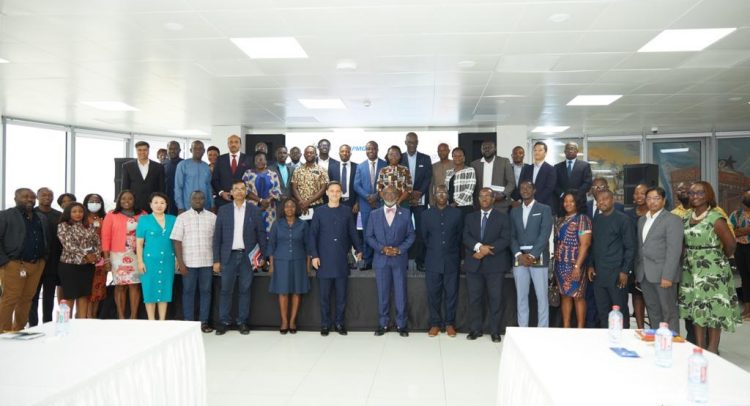Participants at the meeting
The Ghana Investment Promotion Centre (GIPC) has held its second CEOs Breakfast Meeting for the year, with a focus on the manufacturing sector.
The event availed a unique opportunity for key state and private stakeholders to delve deeper into the country’s manufacturing sector and its vast business potential.
It also spearheaded a discourse on the challenges of the sector and allowed participants to exchange innovative ideas on how to advance the sector, as well as agree on some recommendations for policy formulation.
Ghana’s manufacturing sector has been a significant source of its economic growth in recent times.
The sector’s progress is attributed to the government’s aggressive industrialization drive, with accompanying initiatives such as; the ten-point industrial agenda, the Automotive Development Policy, One District-One Factory policy, the Integrated Aluminium Industry project, and the Ghana CARES programme.
Nonetheless, the current instabilities in the global business ecosystem, due to noticeable political and health crisis, has significantly affected the manufacturing sector.
Owing to the disruption in value-chains and other industrial challenges, the CEO of GIPC, Yofi Grant said it has become more crucial to work collectively to find answers to problems besetting the country’s manufacturing sector.
Underscoring the role of the private sector in driving industrial growth, he noted that partnerships between government and private players are the right step to finding the needed solutions.
He opined at the event that: “we recognize the urgent need to embrace the private sector as partners in undertaking corrective actions, that can move the country forward”, adding that “Ghana’s business potential remains enormous, and the government is committed to creating an enabling environment for all investors to fully leverage the opportunities”.
Corroborating Mr. Grant’s assertion, the Head of the One District – One Factory (1D1F) initiative at the Ministry of Trade and Industry, Kofi Addo, noted that since the current global business landscape is fraught with some challenges, the opportunities in Ghana remain endearing.
He encouraged the private sector to make optimal use of the country’s resources.
Taking his turn to address the audience, the President of the Association of Ghana Industries (AGI), Dr. Humphrey Ayim-Darke, said the government and the private sector will have to work together in these critical times, to address the manufacturing industry’s issues. He mentioned that more can be done to raise the confidence level of investors in the sector.
The event further allowed for a deeper all-inclusive debate on actionable solutions for the sector. Key among the suggestions tabled include; the need for government to review the general tax regime; the need for government to deliberately target and support ailing industries; the need for stakeholders to develop the industrial value-chain from the grassroots, and the need for a review of deregulation policies.
By Jamila Akweley Okertchiri


